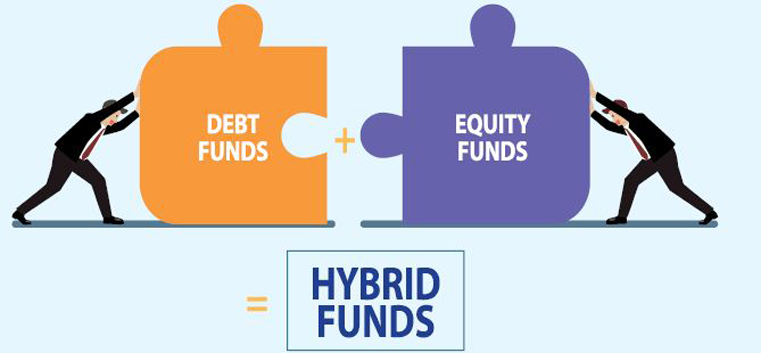DSTT Conservative Hybrid Fund Direct Growth
The fund has 24.37% investment in domestic equities of which 6.16% is in Large Cap stocks, 2.44% is in Mid Cap stocks, 9.47% in Small Cap stocks.The fund has 74.2% investment in Debt, of which 69.9% in Government securities, 4.3% is in Low Risk securities.
- : ₹ 59.031 0.45%(as on 08th Nov, 2024)
| Fund Size Rs. 1.07 Cr. | |
| Period Invested for | ₹10000 Invested on | Latest Value | Absolute Returns | Annualised Returns | Category Avg | Rank within Category |
|---|---|---|---|---|---|---|
| 1 Week | 20-Mar-24 | 10179.50 | 1.80% | - | 0.64% | 1/20 |
| 1 Month | 27-Feb-24 | 10049.90 | 0.50% | - | 0.26% | 6/20 |
| 3 Month | 27-Dec-23 | 10315.50 | 3.16% | - | 2.70% | 8/20 |
| 6 Month | 27-Sep-23 | 10688.50 | 6.88% | - | 6.66% | 10/20 |
| YTD | 01-Jan-24 | 10308.70 | 3.09% | - | 2.50% | 7/20 |
| 1 Year | 27-Mar-23 | 11535.80 | 15.36% | 15.31% | 14.89% | 9/20 |
| 2 Year | 25-Mar-22 | 11824.40 | 18.24% | 8.70% | 9.71% | 12/20 |
| 3 Year | 26-Mar-21 | 12952.20 | 29.52% | 8.99% | 9.63% | 11/19 |
| 5 Year | 27-Mar-19 | 15708.80 | 57.09% | 9.44% | 8.96% | 7/18 |
| 10 Year | 27-Mar-14 | 23967.60 | 139.68% | 9.13% | 9.56% | 12/18 |
| Since Inception | 11-Jan-13 | 25997.10 | 159.97% | 8.89% | 9.41% | 14/20 |
About HSBC Conservative Hybrid Fund-Growth
1. HSBC Conservative Hybrid Fund is Open-ended Conservative Hybrid Hybrid scheme which belongs to HSBC Mutual Fund House.
2. The fund was launched on Feb 24, 2004.
1. The investment objective of the fund is that " The scheme seeks to generate reasonable returns through investments in debt and money market instruments. It would also invest in equity and equity related instruments to seek capital appreciation. "
2. It is benchmarked against NIFTY 50 Hybrid Composite Debt 15:85 Conservative Index.
Asset Allocation & Portfolio Composition
1. The asset allocation of the fund comprises around 24.37% in equities, 74.49% in debts and 1.14% in cash & cash equivalents.
2. While the top 10 equity holdings constitute around 12.75% of the assets, the top 3 sectors constitute around 17.74% of the assets.
3. The fund largely follows a Growth oriented style of investing and invests across market capitalisations - around 0.0% in giant & large cap companies, 0.0% in mid cap and 0.0% in small cap companies.
4. The portfolio allocation of debt securities primarily have 2 kinds of risks: interest rate risk & credit risk. While the interest rate movements are driven by the fund's duration, credit quality of debt securities are based on the weighted average credit ratings of a fund. Generally, funds with high credit quality will have the weighted average credit rating of AA- and higher rated securities, funds with medium credit quality will hold securities having credit rating lying between A- to BBB- and funds with low credit quality will hold securities having average credit rating of less than BBB-. Credit rating is a qualitative tool that basically assesses the creditworthiness and financial soundness of a company and takes into consideration several factors including the default rate and solvency of the concerned business entity.
Tax Implications on DSTT Conservative Hybrid Fund-Growth
Hybrid funds which usually invest 65% or more in equity & equity-related instruments will be taxed like Equity funds and those which invest up to 35% in equity & equity-related instruments will be taxed like the new taxation structure of debt funds. Also, the hybrid funds which invest between 35-65% in equity & equity-related instruments will be taxed as per the old taxation structure of debt funds. Generally, tax implications are based on the average asset allocation of the last 12 months in which the fund has invested. However, since the market is dynamic, asset allocation towards equity may increase or decrease depending on the prevailing market & economic conditions. So, the tax treatment of the given fund will vary accordingly and will be determined by its asset allocation. Below are the tax implications from the equity as well as debt side:
For Hybrid funds with 65% and above allocation in equity & equity related instruments:
1. Gains are taxed at a rate of 15% (Short-term Capital Gain Tax - STCG) if units are redeemed within 1 year of investment.
2. For units redeemed after 1 year of investment, gains of up to Rs. 1 lakh accruing from those units in a financial year shall be exempted from tax.
3. Gains of more than Rs. 1 lakh will be taxed at a rate of 10% (Long-term Capital Gain Tax - LTCG).
For Hybrid funds with 35-65% allocation in equity & equity related instruments:
1. If units are redeemed within 3 years of investment, the whole gain will be added to the investor's income and taxed as per his/her applicable slab rate.
2. For units redeemed after 3 years of investment, gains will be taxed at a rate of 20% post-indexation benefits. Indexation is a process of recalculating the purchase price after accounting for inflation into it. The benefit of indexation lies in lowering one's capital gains which brings down the taxable income and thereby reduces taxes on it.
Join our WhatsApp Channel for Updates on Stocks and IPOs.
Follow DS Trading Tech for the Share Market Update, Stocks News, upcoming IPO, Business Ideas, Financial Knowledge, Mutual Funds, Other Advertising, news and their reviews, also keep following us on Twitter, Facebook, and Instagram. For our latest videos, subscribe to our YouTube channel.
By DS Trading Tech
Connect With us-
👉E-mail : dstradingtech@gmail.com
👉FACEBOOK : https://www.facebook.com/DsTradingTech
👉INSTAGRAM: https://www.instagram.com/DsTradingtech
👉YouTube: ![]() / @dstradingtech
/ @dstradingtech
Portfolio Enquiry
We are doing your best Portfolio Manage from to here.
Contact us 9082571271
Click Here






